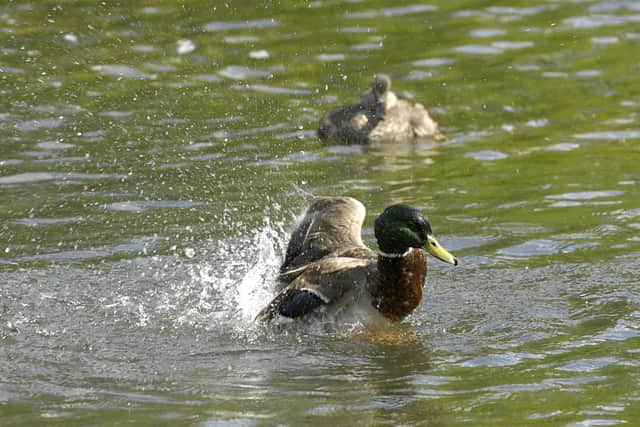Sewage spills in Wigan rose by more than half in 2023
and live on Freeview channel 276
Figures show the number of hours of sewage spills from water companies across England has doubled over the past year – with the Environment Agency saying wet weather may be to blame.
Storm overflows are used when the water system becomes overloaded, such as after heavy rain or from problems with the sewage network.
Advertisement
Hide AdAdvertisement
Hide AdData from the Environment Agency shows sewage from storm overflows was flowing into water bodies in Wigan for 23,594 hours in 2023, during 3,813 spills.


All of these were from facilities operated by United Utilities.
This was up from 14,703 hours recorded the year before, when there were 2,911 spills in the area.
These figures cover the original location sewage was discharged into the environment – the area might also be impacted by sewage released upstream or in shared water bodies.
Advertisement
Hide AdAdvertisement
Hide AdIn 2023 United Utilities recorded the highest number of sewage spills from monitored storm overflows with a total of 97,537. This is up from 69,245 in 2022 and nearly 20,000 more than second-placed Yorkshire Water with 77,761.
Meanwhile, England saw a massive rise in both the number of spills and how long sewage was discharged for.
Last year 3.6 million hours were recorded – with less than 1.8 million hours in 2022 – while the number of spills rose from 301,000 to 464,000.
The Environment Agency said this rise may be partly due to the country experiencing its sixth-wettest year on record.
Advertisement
Hide AdAdvertisement
Hide AdBut James Wallace, chief executive of campaign group River Action, said water companies have "run amok" with their customers' money.
"The scale of the discharges by water companies is a final indictment of a failing industry," he said.
Sienna Somers, nature campaigner at Friends of the Earth, said: "Scandalous inaction by water companies has pushed our ecosystems to the brink and is putting our health at risk.
"But the real sewage scandal is our Government’s pursuit of deregulation and deep cuts to the Environment Agency, which mean even ministers are in the dark about the true extent of water pollution," she added.
Advertisement
Hide AdAdvertisement
Hide AdA spokesperson for industry body Water UK said: "These results are unacceptable and demonstrate exactly why we urgently need regulatory approval to upgrade our system so it can better cope with the weather.
"We have a plan to sort this out by tripling investment which will cut spills by 40 per cent by 2030 – more than double the Government’s target."
"We now need the regulator Ofwat to give us the green light so that we can get on with it," they urged.
The water companies say they want to triple investment to £10bn over the period 2025-2030 to tackle the problem, which would be paid for through consumer bills.
Advertisement
Hide AdAdvertisement
Hide AdThe overflow figures were described as "disappointing" but "sadly not surprising" by the Environment Agency’s director of water, Helen Wakeham.
She said: "We are pleased to see record investment from the water sector, but we know it will take time for this to be reflected in spill data – it is a complex issue that won’t be solved overnight."
Comment Guidelines
National World encourages reader discussion on our stories. User feedback, insights and back-and-forth exchanges add a rich layer of context to reporting. Please review our Community Guidelines before commenting.
